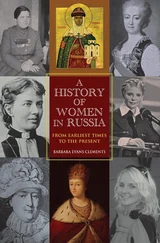Rory Clements - Martyr
Здесь есть возможность читать онлайн «Rory Clements - Martyr» весь текст электронной книги совершенно бесплатно (целиком полную версию без сокращений). В некоторых случаях можно слушать аудио, скачать через торрент в формате fb2 и присутствует краткое содержание. Жанр: Исторический детектив, на английском языке. Описание произведения, (предисловие) а так же отзывы посетителей доступны на портале библиотеки ЛибКат.
- Название:Martyr
- Автор:
- Жанр:
- Год:неизвестен
- ISBN:нет данных
- Рейтинг книги:3 / 5. Голосов: 1
-
Избранное:Добавить в избранное
- Отзывы:
-
Ваша оценка:
- 60
- 1
- 2
- 3
- 4
- 5
Martyr: краткое содержание, описание и аннотация
Предлагаем к чтению аннотацию, описание, краткое содержание или предисловие (зависит от того, что написал сам автор книги «Martyr»). Если вы не нашли необходимую информацию о книге — напишите в комментариях, мы постараемся отыскать её.
Martyr — читать онлайн бесплатно полную книгу (весь текст) целиком
Ниже представлен текст книги, разбитый по страницам. Система сохранения места последней прочитанной страницы, позволяет с удобством читать онлайн бесплатно книгу «Martyr», без необходимости каждый раз заново искать на чём Вы остановились. Поставьте закладку, и сможете в любой момент перейти на страницу, на которой закончили чтение.
Интервал:
Закладка:
Wake them up, Boltfoot. But keep them here. I want to question them.
Boltfoot dismounted from his horse and approached the gang. With his good foot he kicked them one by one in the ribs and pulled them to their feet, ordering them not to move on pain of a flogging. They moved stiffly in the cold but made little protest; the sight of Boltfoot’s short-muzzled caliver-a light musket-slung around his back and the cutlass hanging loosely from his right hand was enough incentive to keep all four standing obediently in their tatters, shivering.
The bellman, George Stocker, arrived with the constable from the direction of Shoreditch. He was still adjusting his smock, having been raised from his slumber, and his bell clanked as he walked. He was a well-fed man with a belly like a pig ready for the shambles.
Tell Mr. Shakespeare what happened, George, the constable ordered.
Stocker removed his hat. His beard was thick and full of goose grease and his brain was clearly as slow as only a bellman’s could be. He grunted some indeciperable greeting, then began his story. I did ring my bell hard and loud, sir, and called out. Folk came from out their beds in the houses around, sir, and drew water from the well in pails. We did douse it quite quickly, sir…
Stocker glanced at the constable, who nodded. Go on, George. Tell the master what you told me.
I did find… Sir, I do not know whether I should say this for it feels like a sin to talk of it.
I believe you found a body. Is that right?
Stocker tensed and looked down at the rough earth beneath his paltry-shod feet. There was the body of a young woman, sir. Unclothed, sir. And most terrible dealt with.
And what else, bellman?
Papers, sir, with writing on, I know not what.
You can’t read? Shakespeare asked.
No, sir.
And you, Constable? Can you read?
No, sir. Though my wife’s brother knows some reading. Should I fetch him?
Shakespeare ignored the question, slid from his gray mare, and handed the reins to the constable. I’m going inside. Hold my horse and stay out here with them. He nodded toward the beggars. Come, Boltfoot.
The neighbors had done a good job of dousing the fire; London was a city built largely of wood, and fires were frequent, so every husbandman had to be proficient at fetching and carrying pails to douse them. The walls of this house were still standing, though blackened. Shakespeare allowed the bellman to lead the way through the gaping hole where the door had been kicked in. He was conscious of the time. One of Walsingham’s post riders had arrived late the previous evening saying Shakespeare was wanted at Barn Elms by midday on a matter of urgency. The Principal Secretary would not wait.
Shakespeare looked around the gloomy shell of the house. It was remarkably intact, given the ferocity of the fire described by the constable. Something caught his eye on the sodden floor. He picked it up. It was a paper, wet and unreadable. Then he saw that there were more papers lying around amongst the burnt stubble of thatching. Some of the papers had distinguishable words and all of them were unfolded, which almost certainly meant they were new printed. He signaled to Boltfoot. Gather them all up.
There were other things, too: type sorts for printing. But no sign of a press. All of it, Boltfoot, the type sorts, too. I will examine it all later. Perhaps we can discover the letter foundry where it was made. Now, Mr. Stocker, where is the body?
Above them the roof was burnt away and the sky hung a brilliant gray where the ceiling should have been. A few flutterings of snow began to drift down.
The staircase was intact, though charred, and they ascended it to the second floor, where, in a jetted chamber at the front, they found a woman’s corpse, naked and bloody, stretched obscenely on a large oaken and canopied bed. A kite was pecking at her eyes but flew up through the skeleton of purlins and rafters as they approached. The bellman gripped his hat in his hands as if he would wring it dry, and averted his gaze. Shakespeare understood why he would wish to do so and why the constable had seemed so shaken.
Her throat had been slit until her head was almost separated from her body. The pink of the woman’s skin had turned a ghastly blue and the blood a coagulated red like dark rusted iron. Her head hung limply with a gaping wound like a second mouth, but that wasn’t what caught the eye. It was her splayed legs and her woman’s organs that commanded attention.
Her belly had been torn open and her womb exposed. A fetus, perhaps three inches long, had been pulled from her and lay above the wound, still attached by its cord. Shakespeare shuddered; its little head seemed perfectly formed. Pulling his eyes away from the tiny body, he approached the bed and examined the woman’s face. Though twisted and contorted by her death agonies, he knew her features. He turned to the bellman. Leave us, Mr. Stocker. Wait outside with the constable.
The bellman needed no second bidding to leave this charnel house; he was gone like a hare from a hound.
What do you make of it, Boltfoot?
Most profane, master.
Do you recognize her? She’s a Howard. Lady Blanche Howard. The dead woman was, in fact, as he knew well, a close cousin of the new Lord High Admiral and commander of the English Navy, Howard of Effingham. She had been brought up in his household when the plague took her parents. The Lord Admiral was known to treat her as his own daughter.
Yes, sir.
Shakespeare was silent for a few moments. He looked closely at the body and then took in the surroundings. What was a woman like Blanche Howard, a cousin of the Queen, doing in a place like this? Though far from the worst sort of tenement, this house was a long way from the palaces and great country houses to which she was born.
This is a bad business, Boltfoot.
Shakespeare had seen Blanche at court from time to time, and thought her to be about eighteen or nineteen. She had seemed typical of the younger women of the nobility who made their way to court and fluttered about like butterflies or attended the Queen’s chamber until their parents made a match for them and they were consigned to their husband’s country estates. Were there rumors about her? Was she married or betrothed yet, and if not, why not? He thought he recalled hearing that she had fallen in with some of the more loose-living, wanton elements, but there was nothing unusual about that. The young ladies of the court were not exactly known for their purity. Shakespeare suddenly felt the cold of the morning through the thickness of his long fur cloak and doublet. He held out his gloved hand to Boltfoot, who handed him the papers he had gathered.
Is that all of them?
I believe so, master.
Check again. And start a fire outside.
Shakespeare shuffled through the papers. They were all the same, new printed. The scattering of type sorts seemed to suggest this had been the site of an unlicensed wagonback press, an illegal printing works that could be transported relatively easily from hiding place to hiding place. It also seemed certain that whoever was printing here had left in a hurry, in too much of a rush to gather up the remaining papers and type sorts. What kind of infamy had Blanche Howard found herself involved in here? And, more importantly now, with whom had she been involved, and who had killed her? He took the best preserved of the papers and held it away from his eyes under the snowy light. It was headed God’s Vengeance On The Bastard Usurper. After a short preamble, it read: Whereas previously we have discussed the deceits, dissembling, lying, flattering, complots and secret practices of the said monstrous Earl of Leicester and his designs for the crown of England, let us not neglect the wretched sins and wickedness of that same Virgin by which he would have succeeded in his foul and corrupt aims. Withal she had the pox, this great sovereign lady, daughter of the harlot Boleyn and murderer in heart of her father’s true-born daughter, yet it was not God’s visiting on her but a base man, with the aid of his complice, the selfsame Mother Davis of whom we have heard, that brought her abed. And a strange pox it was that swelled her belly and brought forth another bastard of her abominable line, wet-nursed by the sorceress Davis and brought to her majority ingreat secrecy…
Читать дальшеИнтервал:
Закладка:
Похожие книги на «Martyr»
Представляем Вашему вниманию похожие книги на «Martyr» списком для выбора. Мы отобрали схожую по названию и смыслу литературу в надежде предоставить читателям больше вариантов отыскать новые, интересные, ещё непрочитанные произведения.
Обсуждение, отзывы о книге «Martyr» и просто собственные мнения читателей. Оставьте ваши комментарии, напишите, что Вы думаете о произведении, его смысле или главных героях. Укажите что конкретно понравилось, а что нет, и почему Вы так считаете.












